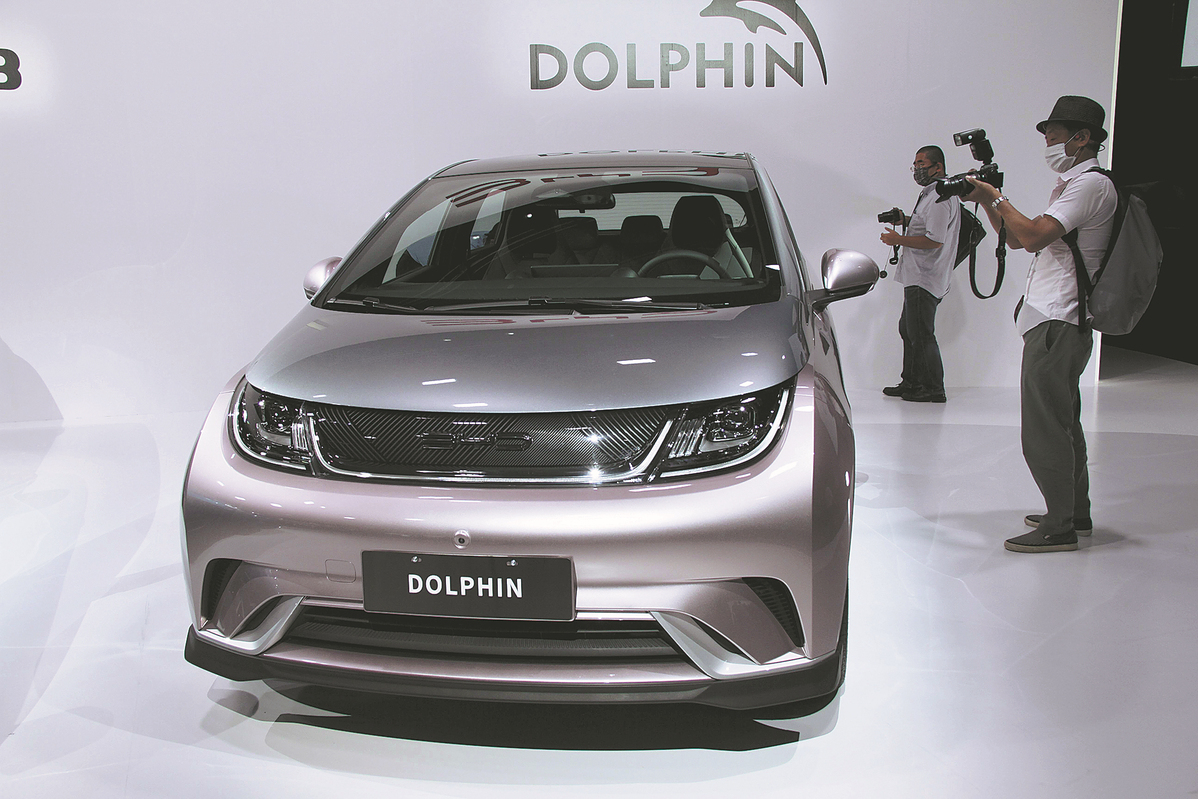Chinese brands gain foothold in Japan, eye next-level growth


TOKYO — While Japan's unique business culture and a strong emphasis on quality may have deterred some foreign firms seeking quick money to enter the country, an increasing number of Chinese companies, with their long-term commitment and solid steps, are starting to gain a foothold in the hard-to-crack market.
On Jan 31, China's leading electric vehicle manufacturer BYD started selling its sports utility vehicle ATTO 3 in Japan, with its first dealership opened in Yokohama.
The automaker is also planning to introduce two more models later this year and to have more than 100 dealerships in Japan by the end of 2025.
In the auto powerhouse, with its high level of customer loyalty to local brands and low EV penetration as hybrids remain the mainstay, BYD's foray into the EV passenger car market marked a significant step forward as the company seeks to bring its business to the next level after more than 20 years of engagement in the country.
BYD first entered the Japanese market in 1999 with its battery businesses. It then introduced electric buses in 2015, which now account for 70 percent of Japan's electric bus market.
BYD's move has attracted much media coverage in Japan, with some seeing the company's potential as a catalyst to electrify the mass market.
In the home appliance sector, Chinese company Hisense Group has gained increasing recognition. Hisense products ranging from televisions to refrigerators have found prominent places in stores that have long been monopolized by local established brands.
Hisense's share in the Japanese TV market came in at 13.4 percent last year, ranking fourth. If including the Regza TV brand that Hisense acquired, the market share amounted to more than 30 percent, according to Tokyo-based research firm BCN.
Li Wenli, general manager of Hisense Japan, attributed Hisense's breakout in Japan to factors including cost advantages, cooperation with local partners and a clear target market strategy that centers on consumer demands from 26 to 35-year-olds.
To cater to the needs of demanding Japanese customers, both BYD and Hisense have adopted differentiated approaches in the country.
Instead of using the more efficient and low-cost online sales model, BYD has decided to go for brick-and-mortar dealerships.
Liu Xueliang, general manager of the BYD Asia-Pacific auto sales division and president of BYD Japan, explained that the traditional dealership model would help foster a sense of trust among Japanese consumers while also creating more local jobs.
Hisense, in order to win Japanese customers, has redesigned or redeveloped products in the market. The company has also set up a research center in Japan to study consumer preferences and technologies to upgrade products.
While more Chinese companies have survived the first stage of development in Japan, they also acknowledge the challenges ahead, such as Japan's aging population, fierce competition with local peers and unstable currency exchange rates.
Apart from the home appliance sector, Hisense is actively exploring opportunities in other areas including the internet of things.
"We will invest in business-to-business areas to enhance the risk resistance of the company and accelerate the pace of development," Li said.




































